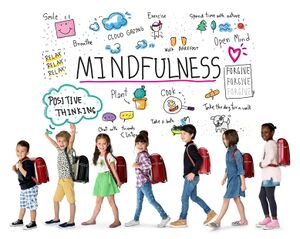How to Develop a Learning Mindset for Personal Growth
Presentations, deadlines, meetings, networking events, time with family, and social obligations. Squeeze in a little 'me' time too. After a busy week, it's hard to want to learn something new or go to a class that will help your career.
But can learning take a back seat in a world that moves so fast and is so competitive? What if we might show you how to develop a learning mindset and make learning a natural part of your daily life, just like the most inspiring and successful people globally?
Create a balance between work, life, and learning.
Because technology is changing in all industries, there needs to be a more robust and continuous link between education and work. Every day, as artificial intelligence, automation, and technology get better, they change the way work is done. Learning new things all the time is now a business necessity.
It is the only tool that good leaders have used to make sense of a constantly changing, uneven playing field. Most abilities have a half-life of about five years, according to research. The most important technical skills are learned in two and a half years.
The short shelf life of technical skills shows again how important it is to keep learning and relearning to stay relevant. We learn both consciously and unconsciously as professionals. We unconsciously know new things every day when we read articles, work with new team members, use new programs and tools, and look over presentations.
But if you require to stay ahead of the pack, it's just as important, if not more so, to learn more formally and consciously. Set aside an hour a day or once a week to learn something new, and stick to it. Plan your engagements, meetings, and deliverables around this.
Set your goal and work backward
What is the reason you want to learn? It's essential to figure this out. Most of the time, it's hard to change the way we think and act unless we have a robust and outside reason to do so. Concentrating on the return on investment (ROI) can assist you in meeting your daily or weekly learning goals and develop a good learning mindset for the long term.
The "why" could be anything from:
- Change jobs or companies.
- Need new skills to get a raise?
- Worry about becoming irrelevant in the future
- I want to upskill to prevent job stagnation.
Find a feedback and learning partner
There is a ignite at the finish of the tunnel, but if you are not self-motivated, the journey can become lonely, boring, and pointless. Feedback and responsibility are the two most important parts of learning. This makes sure that people keep learning and that the lessons are put into practice well.
Someone at work or a friend with whom you share learning goals could be your learning and feedback buddy. You may be learning different skills, but you can still hold each other accountable, talk about how to do things, and often check in on each other.
Step back and think about your learning journey
When you're an adult, learning is very focused and often has a goal in mind. At each stage, it is vital to set metrics and learning objectives. Whether it's an online course or a workshop, make an action plan, review what you've learned, and start putting it into practice as soon as possible.
Instead of signing up for multiple courses and dropping out in the middle, you should take a step back, think about your "why," and only sign up for programs that help you reach your end goals. This is a crucial step to help you get in the right frame of mind for learning.
Set aside time per week to find out, and keep doing it until it becomes a habit. Set SMART goals, take time to think about them and make changes as needed. Talking to a manager or career counselor can also help you make better plans for how to learn.
Leave your comfort zone and be ready to use what you have learned
We asked Shaun Dubash, who is in charge of our products, how a learner should choose the right course or workshop. He said, "If you want to learn, remember to answer these questions honestly:
- Can you trust the source?
- Are you putting together a good network and group?
- Can you put what you've learned to use?"
What matters is how well you can use what you've learned when learning. You can only develop a learning mindset and make it a regular part of your life if you know, apply, learn more, and grow. Your job can be a place where you use what you've learned.
If there aren't any opportunities, you could also do small projects in your chosen field to put what you've learned to use. It's OK to fail because it's the first step toward success and will teach you how to use the ideas you've learned in the classroom in real life.
Instruments to assist you in beginning your learning journey:
- Use your time wisely, make a plan for each day and week, and leave room in your schedule to learn, work, and spend quality time with your family and yourself.
- Find side jobs and projects that are interesting. You might not be able to use everything you learn at your current job. Take on small projects where you can use your skills and work with exciting people.
- Put together a group: Talk to people who think as you do, participate in online forums, question ideas (and yourself), and always be willing to learn something new.
- Choose the right one: You can pick courses from a wide range to help you move up in your career. Before choosing, compare universities, programs, fees, and how well you learn from them.

